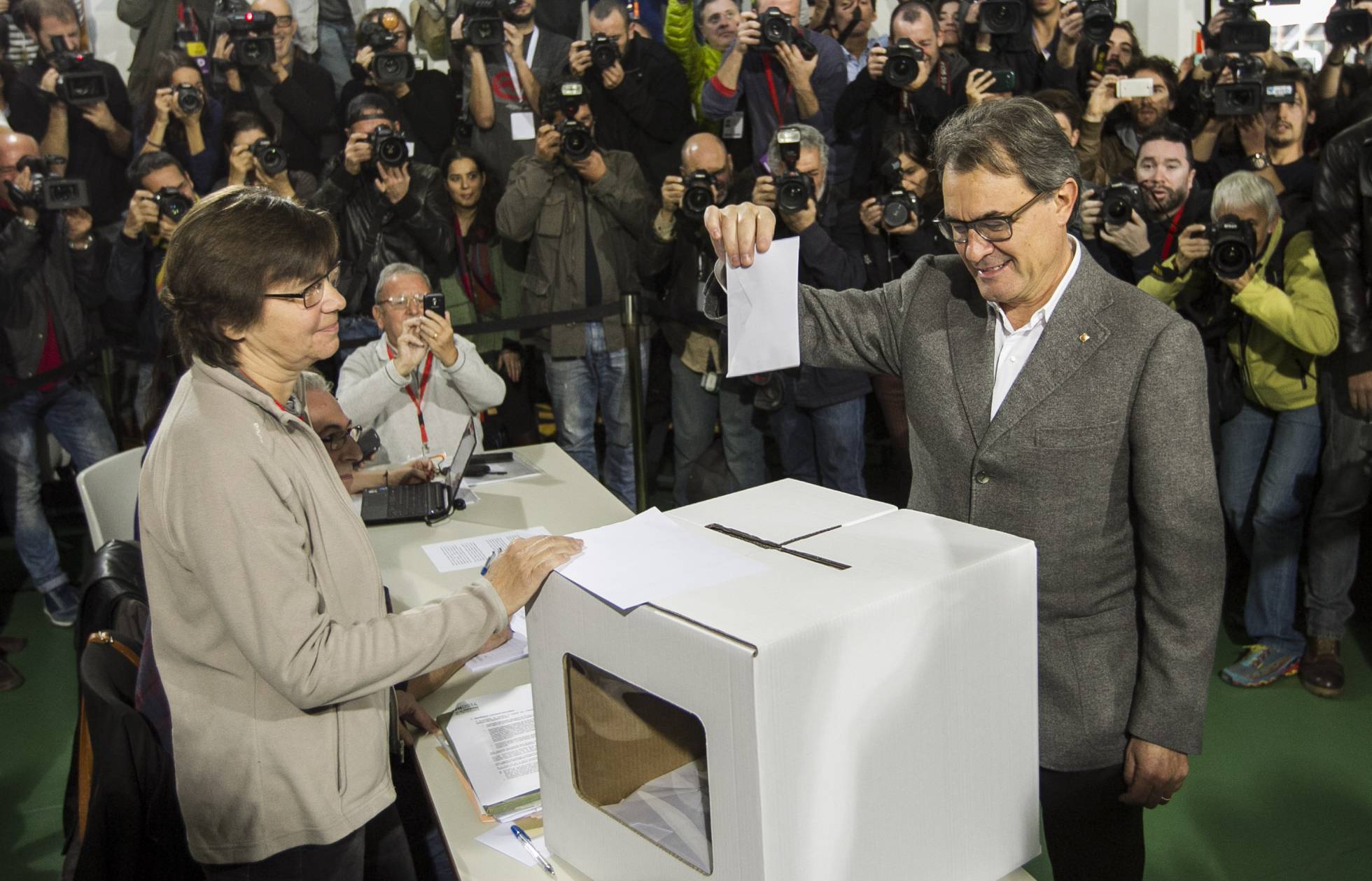The sovereign entity chaired by Jordi Cuixart collected 82,800 responses throughout Catalonia in October 2014
The National High Gourt has confirmed the sanction of 200,000 euros for very serious infringement that the Spanish Data Protection Agency imposed on Òmnium Cultural in April 2016 for carrying out a survey throughout Catalonia on the independence; this survey, by the way it was carried out, allowed for the personal identification of supporters or opponents to the secession of that community from the rest of Spain. The sovereign entity, chaired then by the deceased Muriel Casals, made the so called ‘Gigaencuesta’ between October and November 2014, in the middle of the campaign ‘Ara es l'Hora’ (Now is the Hour), of mobilization in favour of the sovereignty consultation of November 9, 2014, organized by the Generalitat despite the Constitutional Court's prohibition.
The ‘Gigaencuesta’ was carried out by postal mail and with 30,000 volunteers of the organization they visited the whole community with door-to-door visits with the aim of reaching three million addresses. Finally, they obtained 82,814 answers. According to the ruling of the First Contentious Administrative Section of the National High Court, Òmnium processed the data of the respondents in a way that allowed for the linking of the data to a specific address.
The pro-independence macro-survey included six questions, most of them drafted with an obvious bias in favor of the breakup of Catalonia with the rest of Spain. "If Catalonia were a state, it would have between 8,000 and 16,000 million euros more. How do you think this extra money should be spent?" Or "Building a new country would allow us to start from scratch and renew democracy. What do you think is the highest priority?" volunteers would read and then give three options, all of them attractive, suggesting that independence would only bring political, social and economic improvements. The last question was the most direct: "Will you vote on November 9?”, and had three options: "I will go to vote, and I have already decided my vote ","I will vote, and I will decide my vote any time", and "I will not go to vote."
In the same form, in a separate section, the volunteers asked, on behalf of Òmnium, for the consent of the respondents to collect their personal data, including name, address, email and telephone. The volunteers, who divided Catalonia by geographical areas, delivered the surveys completed in the twenty offices of the organization distributed throughout the community. After the survey in each geographical area was completed, the next step with the documentation was to process the data by means of an application provided by ANC.
The Data Protection Agency opened an inspection and accessed the computer application developed which contained a total of 82,814 surveys including both the responses and personal data of the respondents. The inspectors were able to verify that the responses and personal data of the respondents were entered on the same screen simultaneously. In addition, the stored hard copy surveys included a handwritten summary with "the number of doors that do not open, or that do not want to do the survey, in addition to the list of buildings to visit” (street, number and total of doors ). They also had, according to the sentence, a series of handwritten annotations referring to each of the homes visited with specific indications (“will not go to vote, is not legal, is of no interest, does not want to attend, does not open, leaves the survey, doesn’t want to do it ...)".
Identification "without great efforts"
The court concludes that Omnium did treat the data of the respondents in a way that allowed the linking of the data with a specific address, "so that the identification can be carried out without great efforts".
Omnium in its appeal stated that the survey does not collect ideological data. This argument is rejected by the court, which considers proven that the respondents had to depart previously from and implicitly accept "the ideological position derived from this form, which is none other than the one favorable to the independence of Catalonia with respect to the Spanish State". The survey, according to the judges, is clearly in favor of a specific ideological position, "which is the independence of Catalonia, with which the respondent has to be necessarily in agreement, because otherwise it would be impossible to fill in the survey, or at least in its entirety".
Therefore, the court concludes that it was possible to know whether or not the respondent supported the independence process, and, therefore,a treatment of personal data of ideology has been carried out by Omnium; these data are particularly sensitive and so the law requires a specific reinforcement when the owners give their consent to the treatment of their data.
The penalty of the Data Protection Agency for very serious infringement would be between 300,001 and 600,000 euros. The magistrates consider the figure of 200,000 set by the government body to be proportionate, which took into account that Omnium and ANC eliminated the information obtained when they were ordered to stop using the data illegally. In addition, following the request of the Agency, they separated in the surveys the part related to the answers and the one referring to the personal data of the respondent and their consent. The sentence can be appealed in cassation before the Supreme Court.
https://elpais.com/politica/2019/01/25/actualidad/1548429154_226721.html
https://elpais.com/politica/2019/01/25/actualidad/1548429154_226721.html








0 comentarios:
Post a Comment